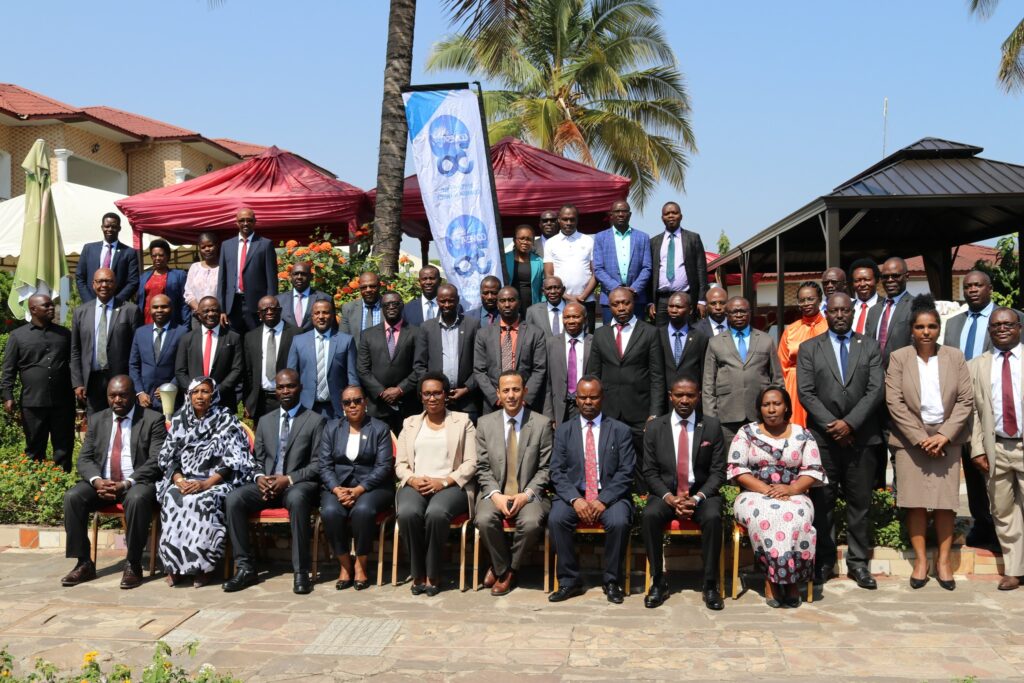
Ministers responsible for energy, transport, ICT and communications from the Common Market have endorsed a series of critical sectoral reports and action plans aimed at advancing sustainable infrastructure across the region.
The high-level meeting, hosted at the Royal Palace Hotel in Bujumbura on 27 June 2025, was officially opened by H.E. Marie Chantal Nijimbere, Burundi’s Minister of Trade, Transport, Industry and Tourism, who also chairs the COMESA Council of Ministers.
She highlighted infrastructure as a key driver of inclusive growth, structural transformation, and peacebuilding.
“Infrastructure connects communities, fosters opportunity, and forms the backbone of regional integration,” Nijimbere said, further urging Member States to prioritize impactful interventions, eliminate policy barriers, and transform infrastructure plans into measurable outcomes.
The Minister indicated that in 2020, the continent suffered an unprecedented contraction of -1.6% in GDP, but however rebounded strongly, recording 6.9% growth in 2021. She added that with support from the African Development Bank (AfDB), the continent’s GDP grew to average 3.8% in 2024 and 4.2% in 2025, driven by expanding services and a recovering industrial base.
“Amidst this recovery, persistent and formidable threats continue to loom large. Climate volatility continues to challenge our agricultural systems and infrastructure; digital exclusion perpetuates disparities and stifles innovation; and energy insecurity remains a fundamental impediment to industrialization and human development,” Hon. Nijimbere said.
The ministers reviewed sector-specific progress reports spanning road, rail, maritime, air transport, energy and ICT.
Assistant Secretary General in Charge of Programmes, Amb. Dr. Mohamed Kadah emphasized the urgency of addressing infrastructure inefficiencies and closing funding gaps to boost regional competitiveness.
Dr. Kadah noted that significant initiatives under review include the Regional Infrastructure Financing Facility (RIFF) and the Accelerating Sustainable and Clean Energy Access (ASCENT) programs which target investment in renewable energy, off-grid markets, and harmonized energy policies.
He stated that, in air transport, global passenger numbers have doubled from 4.5 billion in 2019 to 9.5 billion in 2024, despite Africa’s share remaining low at just 2.2% of Revenue Passenger Kilometers.
“COMESA is advancing the Single African Air Transport Market (SAATM), with 38 countries—including nine from COMESA—now committed. A cooperation agreement signed with IATA in 2024 and rollout through the SATSD program mark key milestones,” the Assistant Secretary General stated.
He informed the ministers that road transport continues to dominate freight movement, handling over 80% in the region and tools like the Yellow Card, Transit Bond and harmonized axle limits are helping to lower trade costs under the Tripartite Transport and Transit Facilitation Programme.
Despite rail’s diminished share sitting at below 15%, Dr. Kadah said a new Rail Transport Master Plan, funded by the World Bank, is in development to rebuild regional networks. Lake and inland waterway transport, vital for landlocked countries, is being enhanced through projects like the VICMED Corridor and new RoRo terminals on Lake Tanganyika.
He highlighted significant strides in regional integration through collective ICT initiatives, notably the Africa Cloud Ecosystem (ACE) project—an African Development Bank-funded effort which proposes a secure, continent-wide cloud infrastructure with its head office in Zambia, a main data center in Kenya, and a disaster recovery site in Egypt.
Dr. Kadah added that collaborative actions like the rollout of the COMESA Electronic Certificate of Origin (eCO) in pilot Member States will modernize trade systems, and encouraged broader use of transformative platforms such as the 50 Million African Women Speak Platform, which continues to empower women economically and expand access to essential resources.
The ministers concluded with a strong call for unified strategies, accelerated reforms, and investment mobilization to unlock infrastructure-driven transformation across COMESA.

